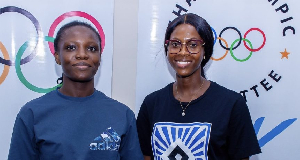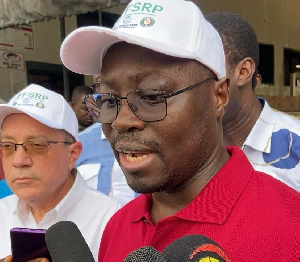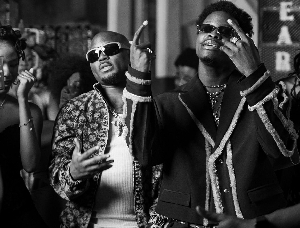On this day 30 July 1930 (Exactly 90 years ago today) Hosts Uruguay beat arch-rivals Argentina to win the inaugural FIFA World Cup tournament.
Played at the Centenario in Montevideo, Uruguay, on 30 July, a Wednesday. Up to date, it is, along with the 1966 FIFA World Cup Final, the only World Cup Final not to be played on a Sunday (the latter being played on a Saturday).
This World Cup Final is also the only one not to be played on a weekend. The stadium gates were opened at eight o’clock, six hours before kick-off, and at noon the ground was full, officially holding 93,000 people.
A disagreement overshadowed the build-up to the match as the teams disagreed on who should provide the match ball, forcing FIFA to intervene and decree that the Argentine team would provide the ball for the first half and the Uruguayans would provide one for the second.
The game ended 4–2 to Uruguay after they trailed 2–1 at half-time, adding the title of World Cup winners to their status as Olympic champions.
Aged 31, Uruguayan manager Alberto Suppici is the youngest coach to ever win the FIFA World Cup. Jules Rimet, president of FIFA, presented the Uruguayan team with the World Cup Trophy, which was later named after him.
The following day was declared a national holiday in Uruguay; in the Argentinian capital Buenos Aires, a mob threw stones at the Uruguayan consulate.
The last living player from that final, Francisco Varallo (who played as a striker for Argentina), died on 30 August 2010 at the age of 100. At the other hand, the last survivor of the winning team, Ernesto Mascheroni, died on 3 July 1984 at the age of 76.
Match Summary
After 12 minutes, Pablo Dorado put the hosts into the lead, before Argentine winger Carlos Peucelle equalised 8 minutes later, beating goalkeeper Enrique Ballestrero with a powerful shot. In the 37th minute, tournament top scorer Guillermo Stábile gave Argentina a 2–1 lead going into the break.
Uruguay leveled the score 12 minutes into the second half via a goal from Pedro Cea, before Santos Iriarte restored the lead for the hosts in the 68th minute. With a minute left, Héctor Castro put Uruguay up 4–2, sealing the victory for Uruguay in the inaugural World Cup.
Uruguay: Enrique Ballestrero, Jose Nasazzi (C), Ernesto Mascheroni, José Andrade, Lorenzo Fernandez, Alvaro Gestido, Pablo Dorado, Hector Scarone, Hector Castro, Pedro Cea, Santos Iriarte
Manager: Alberto Suppici
Argentina: Juan Botasso, Jose Della Torre, Fernando Paternoster, Juan Evaristo, Luis Monti, Pedro Suarez, Carlos Peucelle, Francisco Varallo, Guillermo Stabile, Manuel Ferreira (C), Mario Evaristo
Manager: Francisco Olazar
Technical Director: Juan José Tramutola
Referee: John Langenus (Belgium)
Attendance: 68,346
Elsewhere;
On this day 30 July 1966 (Exactly 54 years ago today) England won their first – and to date their only FIFA World Cup trophy after defeating West Germany 4 -2 in the 1966 final at the London’s Wembley Stadium.
England, managed by Alf Ramsey and captained by Bobby Moore, won the toss and elected to kick off. After 12 minutes, Sigfried Held sent a cross into the English penalty area which Ray Wilson misheaded to Helmut Haller, who got his shot on target. Jack Charlton and goalkeeper Gordon Banks failed to deal with the shot which went in, making it 1–0 to West Germany.
In the 18th minute, Wolfgang Overath conceded a free kick, which Moore took immediately, floating a cross into the West German area, where Geoff Hurst rose unchallenged and levelled the scores with a downward glancing header. The teams were level at half-time, and after 77 minutes England won a corner.
Alan Ball delivered the ball to Geoff Hurst whose deflected shot from the edge of the area found Martin Peters. He produced the final shot, beating the West German keeper from eight yards to make the score 2–1 to England.
Germany pressed for an equaliser in the closing moments, and in the 89th minute Jack Charlton conceded a free kick for climbing on Uwe Seeler as they both went up for a header.The kick was taken by Lothar Emmerich, who struck it into George Cohen in the wall; the rebound fell to Held, who shot across the face of goal and into the body of Karl-Heinz Schnellinger.
The ball deflected across the England six-yard box, wrong-footing the England defence and allowing Wolfgang Weber to level the score at 2–2 and force the match into extra time. Banks protested that the ball had struck Schnellinger on the arm, and reiterated the claim in his 2002 autobiography, but replays showed that it actually struck Schnellinger on the back.
Extra time
England pressed forward and created several chances. In particular, with five minutes gone, Bobby Charlton struck the post and sent another shot just wide. With 11 minutes of extra time gone, Alan Ball put in a cross and Geoff Hurst swivelled and shot from close range.
The ball hit the underside of the crossbar, bounced down and was cleared. The referee Gottfried Dienst was uncertain if it had been a goal and consulted his linesman, Tofiq Bahramov from Azerbaijan in the USSR, who indicated that it was, and the Swiss referee awarded the goal to the home team.
The crowd and the audience of 400 million television viewers were left arguing whether the goal should have been given or not. The crossbar is now on display in the Wembley Stadium.
One minute before the end of play, the West Germans sent their defenders forward in a desperate attempt to score a last-minute equaliser.
Winning the ball, Bobby Moore picked out the unmarked Geoff Hurst with a long pass, which Hurst carried forward while some spectators began streaming onto the field and Hurst scored moments later. Hurst later admitted that his blistering shot was as much intended to send the ball as far into the Wembley stands as possible should it miss, in order to kill time on the clock
The final goal gave rise to one of the most famous calls in English football history, when BBC commentator Kenneth Wolstenholme described the situation as follows:
“And here comes Hurst. He’s got… some people are on the pitch, they think it’s all over. It is now! It’s four!”
One of the balls from the final is on display in the National Football Museum in Manchester.
In Context
Geoff Hurst’s second goal and the decision of referee Gottfried Dienst have continued to be controversial.
But photographic technology has so far been unable to offer decisive evidence about whether or not the ball crossed the goal-line and Hurst remains the only player to score a hat-trick in the World Cup finals.
England: Gordon Banks, George Cohen, Jack Charlton, Bobby Moore (C), Ray Wilson, Nobby Stiles, Alan Ball, Bobby Charlton, Martin Peters, Geoff Hurst, Roger Hunt
Manager: Alf Ramsey
West Germany: Hans Tilkowski, Horst – Dieter Hottges, Willi Schulz, Wolfgang Weber, Karl – Heinz Schnellinger, Franz Beckenbauer, Wolfgang Overath, Helmut Haller, Uwe Seeler (C), Sigfried Held, Lothar Emmerich
Manager: Helmut Schon
Referee: Gottfried Dienst (Switzerland)
Attendance: 96,924
On this day 30 July 2006 (Exactly 14 years ago today) Didier Ya Konan scored twice to help Ivorian side Asec Mimosas crush Hearts of Oak 3-0 in their African Champions League encounter in Abidjan.
Ya Konan opened the score line three minutes from the interval and doubled the lead after the break from the penalty spot.
Emmanuel Kone thundered a furious free-kick midway through the second period to seal the comfortable victory.
Sports News of Thursday, 30 July 2020
Source: happyghana.com













